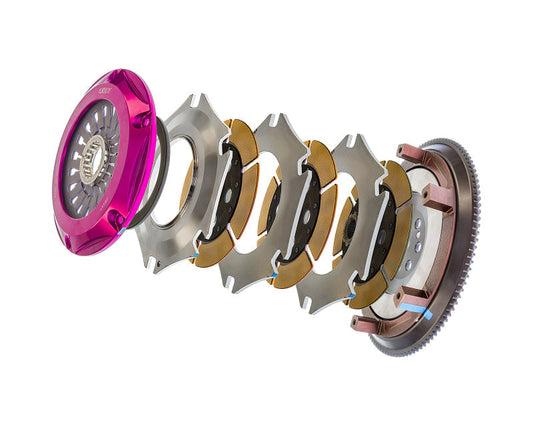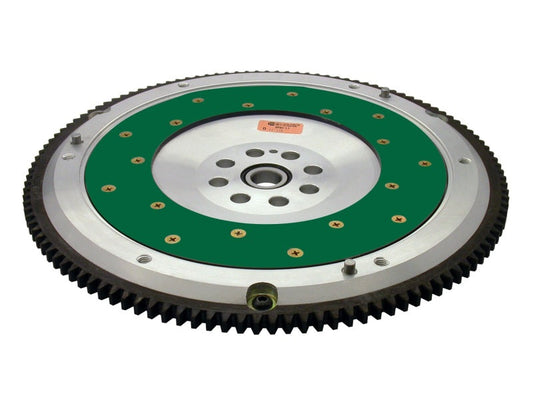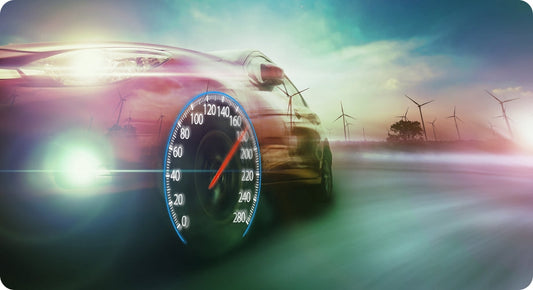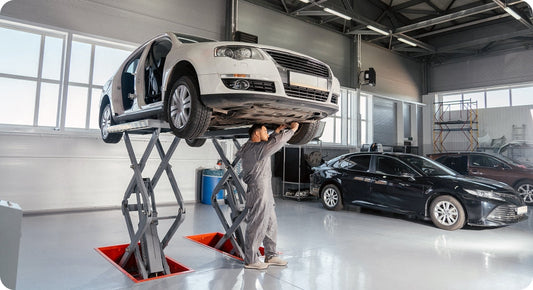Upgrading your wheels is one of the most impactful modifications you can make to your vehicle. However, choosing the right wheel size is crucial, as it directly affects your car’s performance and handling. Whether you're looking for better grip, improved acceleration, or enhanced cornering stability, understanding how different wheel sizes influence your ride will help you make the right choice. At WOT Performance Parts, we offer high-quality wheels and accessories at unbeatable prices to help you optimize your setup.
Why Wheel Size Matters
Wheel size plays a major role in how your vehicle performs on the road or track. Factors such as diameter, width, and weight all contribute to changes in acceleration, braking, suspension geometry, and overall ride comfort.
A properly sized wheel can improve handling and stability, while an incorrect size may negatively impact fuel efficiency, tire wear, and drivetrain performance.
Key Ways Wheel Size Affects Performance And Handling
 1. Acceleration And Speed
1. Acceleration And Speed
Wheel size has a direct impact on acceleration and top speed.
-
Smaller Wheels (Shorter Diameter):
-
Enhance acceleration by reducing rotational mass.
-
Provide better low-end torque, making them ideal for drag racing and city driving.
-
It may slightly reduce top speed due to shorter gearing.
-
Larger Wheels (Taller Diameter):
-
Can increase top speed but may reduce acceleration due to additional weight.
-
Require more power to rotate, affecting the initial takeoff.
-
Works well for highway cruising but may slow 0-60 times.
2. Handling And Cornering Stability
Handling performance is heavily influenced by wheel width and diameter.
-
Wider Wheels:
-
Provide better traction by increasing the tire's contact patch.
-
Improve cornering grip and stability, reducing understeer or oversteer.
-
May cause increased rolling resistance, slightly reducing fuel efficiency.
-
Larger Diameter Wheels:
-
It can improve steering precision, especially on performance cars.
-
Offer sharper cornering response, but may make the ride stiffer.
-
Affect the suspension geometry, potentially requiring alignment adjustments.
-
Smaller Diameter Wheels:
-
Improve ride comfort by allowing a taller tire sidewall, which absorbs road imperfections.
-
They are better suited for rough roads and off-road conditions.
-
May decrease steering response compared to larger wheels.
3. Ride Comfort And Suspension Impact
Wheel size influences ride quality by affecting suspension travel and damping.
-
Larger Wheels With Low-Profile Tires:
-
It can make the ride feel stiffer due to reduced sidewall cushioning.
-
Transfer more road imperfections and vibrations into the cabin.
-
May require suspension upgrades to compensate for the harsher ride.
-
Smaller Wheels With Taller Sidewalls:
-
Offer a smoother ride by absorbing bumps and potholes.
-
They are preferred for off-road or daily driving applications.
-
It may reduce steering sharpness compared to performance-oriented setups.
4. Braking Performance
Larger wheels often allow for bigger brake calipers and rotors, improving stopping power. However, they also add weight, which can increase braking distances if not paired with the right tires.
-
Larger Wheels:
-
Accommodate bigger brakes, enhancing stopping ability.
-
Increase unsprung weight, potentially impacting brake efficiency.
-
Smaller Wheels:
-
Weigh less, reducing rotational mass and improving braking response.
-
May not fit large performance brake kits.
 5. Fuel Efficiency
5. Fuel Efficiency
Heavier wheels increase rolling resistance and require more energy to turn, leading to reduced fuel economy.
-
Lighter Wheels: Improve MPG by reducing overall weight.
-
Heavier Wheels: Require more fuel to maintain speed, slightly reducing efficiency.
6. Tire Options And Availability
Different wheel sizes affect the range of tires available for your vehicle.
-
Smaller Wheels: Offer a wider range of affordable tire options.
-
Larger Wheels: Often require low-profile, high-performance tires, which can be more expensive and wear out faster.
Choosing The Right Wheel Size For Your Vehicle
When selecting wheel size, consider these factors:
-
Performance Goals: Are you looking for better acceleration, handling, or comfort?
-
Driving Conditions: Daily driving, track use, or off-road?
-
Suspension Compatibility: Will your suspension handle the changes in diameter and width?
-
Brake Clearance: Do your wheels fit over your brake calipers?
-
Tire Availability: Can you easily find tires that match your needs?
Get The Best Wheels At WOT Performance Parts
At WOT Performance Parts, we offer a wide selection of performance wheels to enhance your car’s handling, acceleration, and overall driving experience. Whether you're upgrading for looks, performance, or comfort, we have the perfect set for your ride. Shop with us today for unbeatable prices and expert recommendations!






